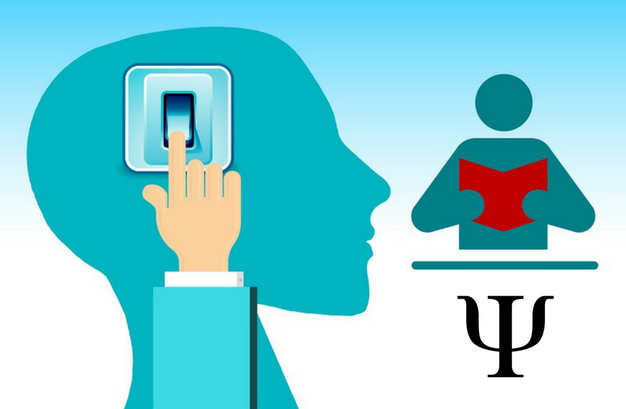Exploring the Future of Mental Health:
The Rise of AI Therapy
David Webb (Owner, writer and host of All-About-Psychology.Com)
From enhancing smartphone auto-correction to fortifying financial transactions, artificial intelligence (AI) has seamlessly integrated into our daily lives. More recently, it has entered the therapeutic field, via a revolutionary movement known as "AI Therapy." An intriguing blend of cutting-edge tech and virtual empathetic touch, AI therapy is paving the way for radical transformations in mental health care.
AI therapy integrates principles from computer science (particularly machine learning and natural language processing), with psychological methodologies to help develop and deliver mental health interventions. This rapidly evolving approach to mental health provision harnesses AI tools, such as therapy apps and chatbots, which are crafted to emulate conversations with human therapists and furnish guidance and support.
AI Therapy Advantages
One advantage of AI Therapy is accessibility. The emergence of AI therapists makes it possible for individuals to seek help without geographical barriers or scheduling constraints.
Additionally, AI Therapy enables instantaneous communication. Users can have immediate access to AI-guided mental health assistance, which can be invaluable during moments of acute distress.
Another advantage is anonymity. With an AI therapist, individuals may feel less self-conscious and more at ease sharing their feelings.
Consistency is another advantage of AI therapy. An AI therapist has no 'off days' and can offer an unwavering support for individuals seeking help in dealing with their mental health challenges.
Challenges and Concerns
AI Therapy is not without its limitations. It cannot currently replace human therapists in catering to the emotional complexities that form the crux of human psychology. Quintessentially human traits such as humor, empathy and compassion are yet to be fully replicated by AI.
A related issue is lack of personalization. Despite advancements in intuitive response building, AI is still far from being able to offer the deeply personalized care a human therapist can. For example, picking up on subtle cues such as tone of voice, facial expressions, or body language.
Reliability is another concern. Like any other technology, AI systems can malfunction or experience downtime, leading to a lack of support during times of crisis.
Data privacy is also a concern. For AI Therapy to work, users need to share personal information. Without solid measures to secure the data, there's a risk of breach and misuse, creating trust issues between users and the technology.
Lastly, AI Therapy may lead to over-dependency. As it currently stands, AI therapy should be considered as an adjunct to traditional therapy, rather than an alternative. Over-reliance on AI could deter individuals from seeking essential human counseling sessions.
Case Study: Woebot
Created by clinical research psychologist Dr. Alison Darcy, Woebot is a mental health app that utilizes a chatbot interface powered by artificial intelligence (AI) and Natural Language Processing (NLP), to engage users in conversations and offer evidence-based strategies and tools drawn from cognitive behavioral therapy (CBT), Interpersonal Psychotherapy (IPT) and Dialectical Behavior Therapy (DBT).
"Some of our darkest moments happen at 2 AM when there's no one there. We designed Woebot to be your personal ally, always available to have a conversation that can help you understand yourself and ease your mind". (Alison Darcy, PhD., Founder & President, Woebot Health)
Among the research findings involving the use of Woebot, are that it quickly establishes a lasting bond that is comparable to the bond created between human therapists and patients; chatting with Woebot for two weeks leads to a significant improvement in mood and that Woebot offers a feasible, engaging, and effective way to deliver CBT.
To learn more about Woebot, visit: woebothealth.com
An Exciting Future
The rapid strides in AI Therapy are on an uncharted journey. A journey that promises personalized healing experiences, soulful virtual healing environments, and compassionate AI companionship. Yet, it is also a journey that requires us to discuss and address the inherent challenges that AI Therapy brings.
AI therapy holds an exciting future, shaping the way we perceive and approach mental health challenges. As technology continues to evolve, we can anticipate the rise of more intuitive chatbot counselors and warm virtual support networks.
There's no doubt AI Therapy is making a significant impact on global mental health. It's opening doors to a new dimension in healthcare, where technology-enabled empathy and AI-supported emotional growth converge for a holistic approach to mental health.
However, as AI continues to tread ethically sensitive terrain, it's essential to prioritize maintaining robust regulations and standards. This will help build trust toward AI Therapy and push the field toward greater acceptance and widespread use.
As we embrace this remarkable advance, we need to instill a thoughtful balance between digitally enhanced well-being and time-tested traditional therapy. We need to ensure that AI Therapy doesn't isolate but rather connects; doesn't replace but rather supplements.
There's a myriad of career opportunities in the field of AI Therapy. Psychologists, coders, AI experts, and individuals with lived mental health experiences will all play key roles in shaping this rapidly evolving discipline.
A Final Word
Utilizing AI's potential is going to revolutionize mental health care's future. The concept of AI Therapy, if rightly implemented, will be a game-changer, paving the way for more efficient, accessible, and empathetic mental health services.
Nevertheless, as much as AI Therapy promises a bright future for holistic mental health solutions, we must not lose sight of safeguarding individual interests, ensuring ethical practices, and preserving the essence of humanness in the therapeutic journey.
As we continue our exploration into the intriguing world of AI Therapy, let's remember to approach with an open mind, understanding that technology is here to assist us. It is we humans who will determine the degree of its impact and benevolence. After all, it's not about replacing the human in therapy; it's about harnessing the power of technology to supplement and enhance human efforts in the service of mental health and psychological well-being.
Want to Read More Great Articles?
See following link to check out a fascinating collection of psychology articles by leading academics and researchers.
This Psychology Symbol - Vintage Retro Striped Sunset T-Shirt is available from Amazon (prime eligible) in a range of colors for women and men. Sales help support this website, which has been providing free and comprehensive information and resources for psychology students and educators since 2008.
Recent Articles
-
Tourettes: Understanding Tourette Syndrome Beyond Stereotypes
Feb 23, 26 06:01 AM
Learn what tourettes really is, why swearing is a myth for most, and how education reduces stigma around Tourette syndrome. -
Psychological Impact of Catastrophic Injury & Recovery
Feb 17, 26 02:26 AM
Explore the psychological impact of catastrophic injury, including trauma, identity shifts, resilience, and long-term mental health recovery. -
Psychology Articles by David Webb
Feb 10, 26 06:31 AM
Discover psychology articles by David Webb, featuring science-based insights into why we think, feel, and behave the way we do.
Know someone who would love to read Exploring the Future of Mental Health: The Rise of AI Therapy. Share this page with them.
Please help support this website by visiting the All About Psychology Amazon Store to check out an awesome collection of psychology books, gifts and T-shirts.
Go From 'Exploring the Future of Mental Health: The Rise of AI Therapy' Back To The Home Page







